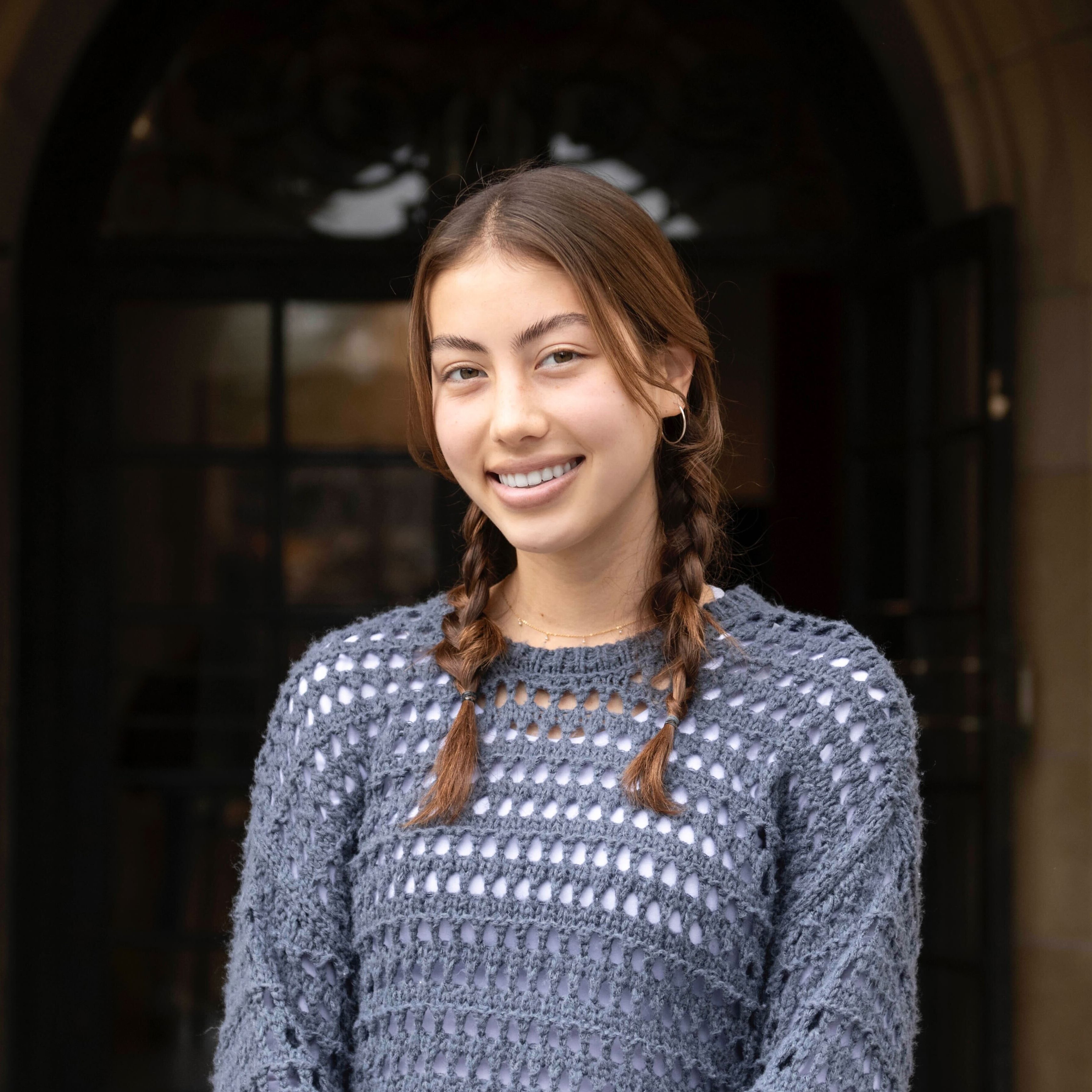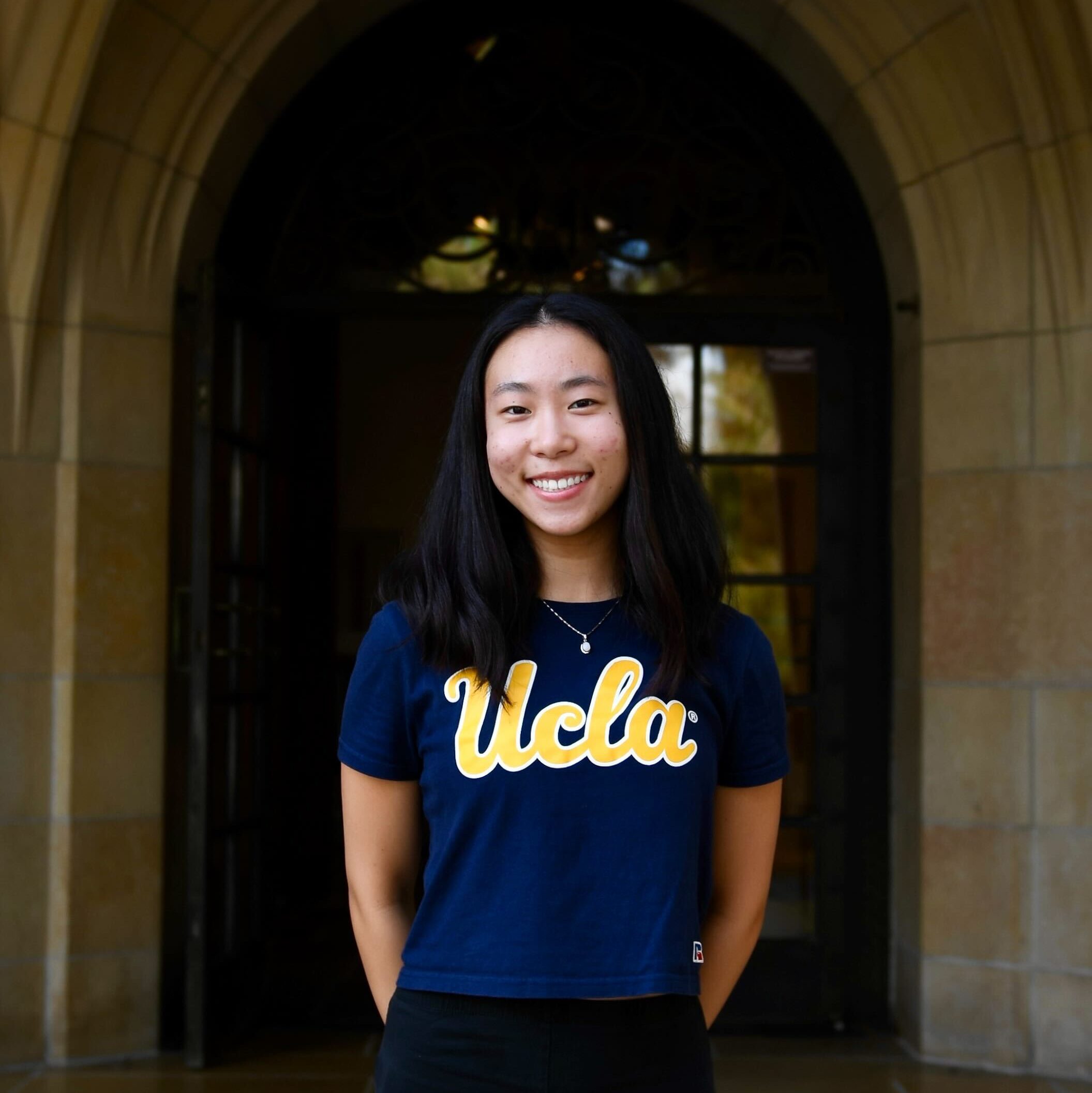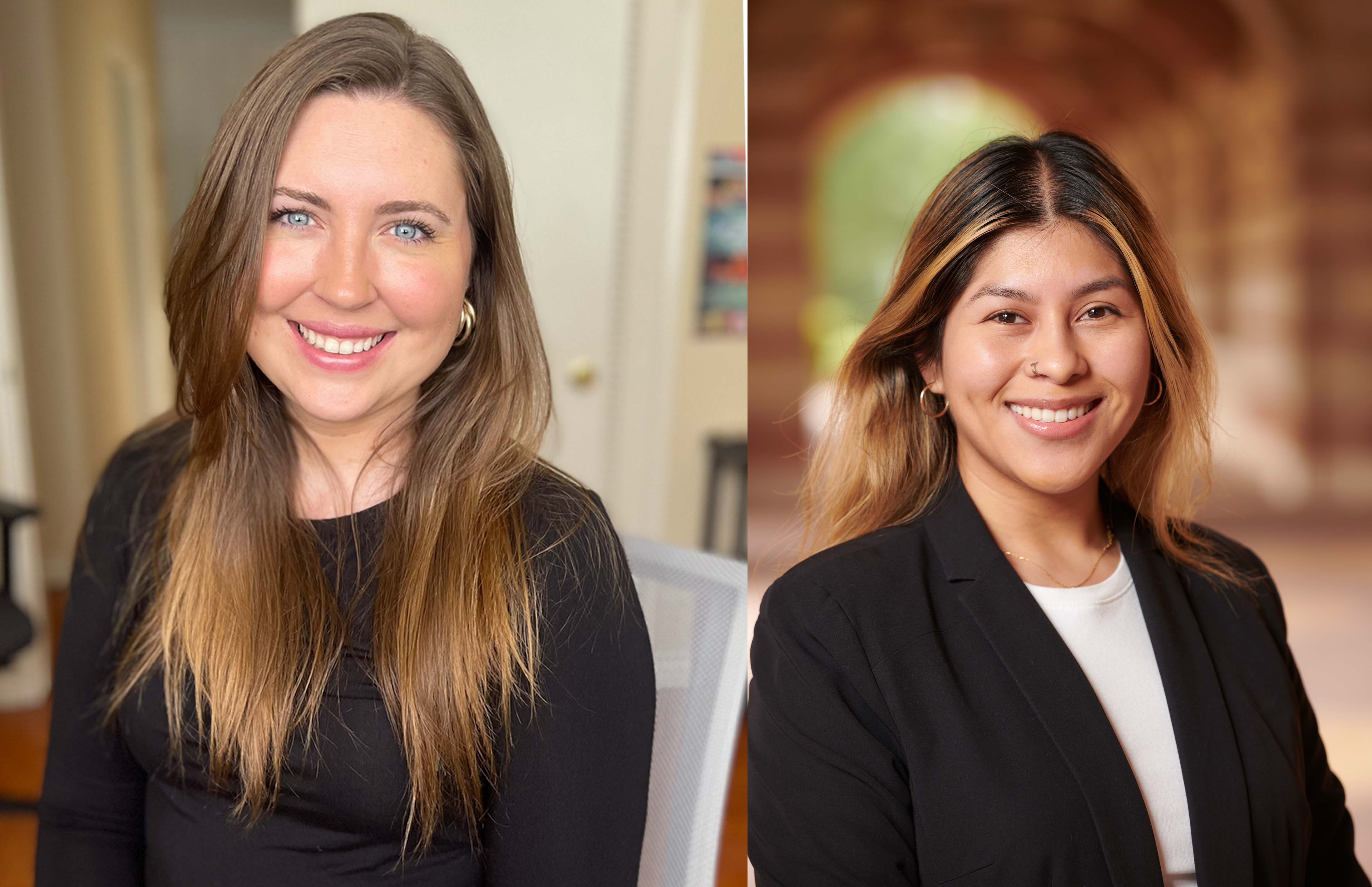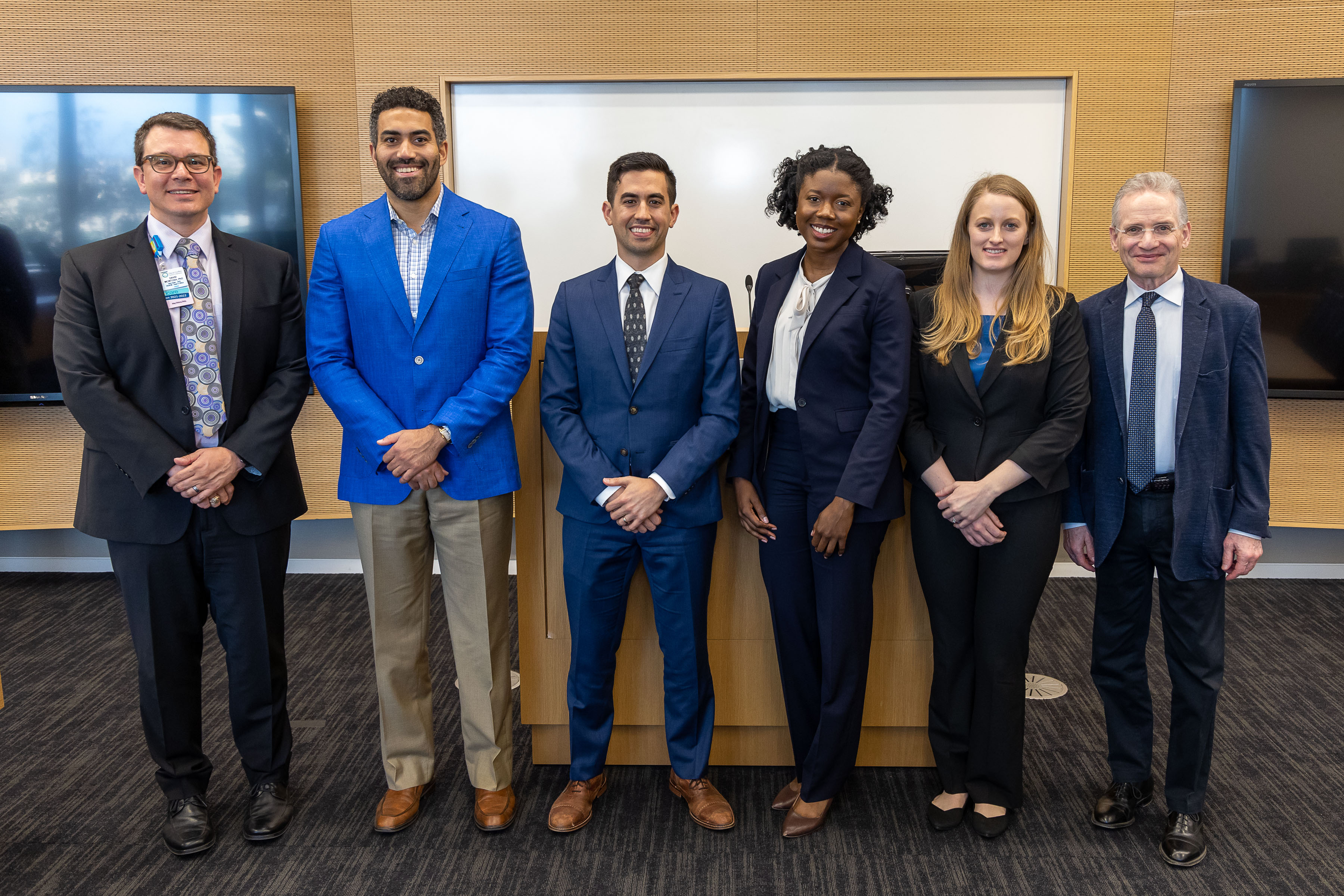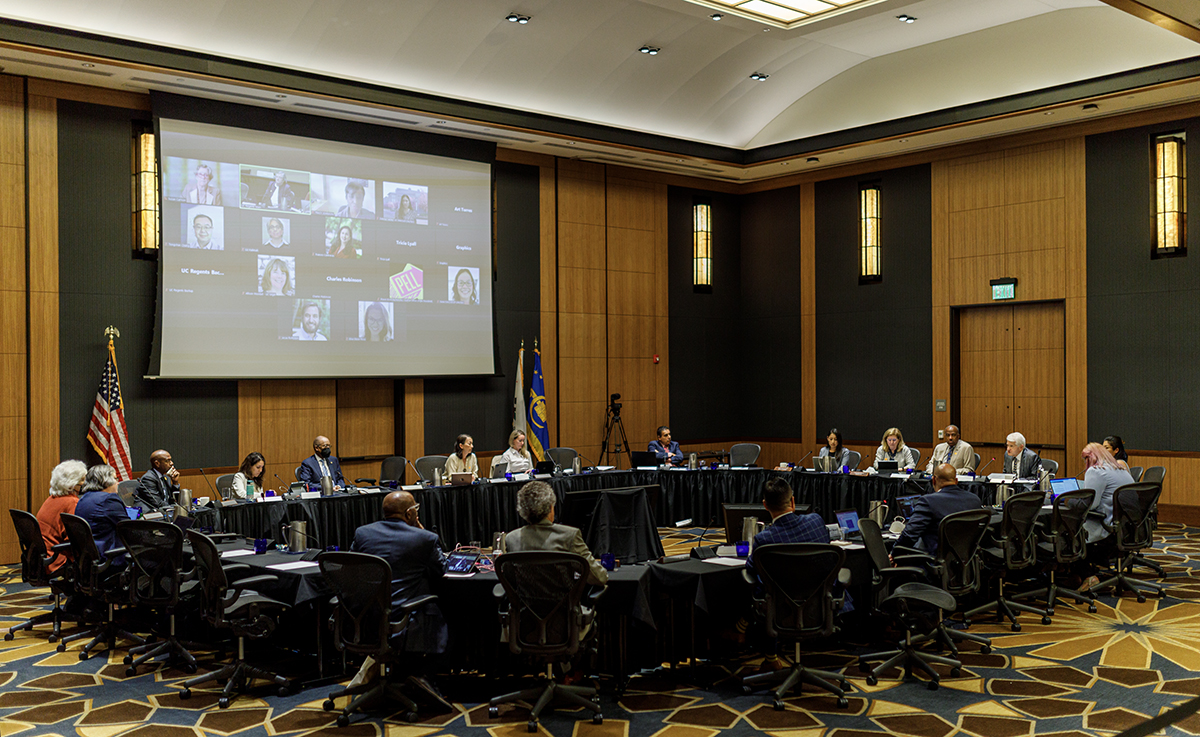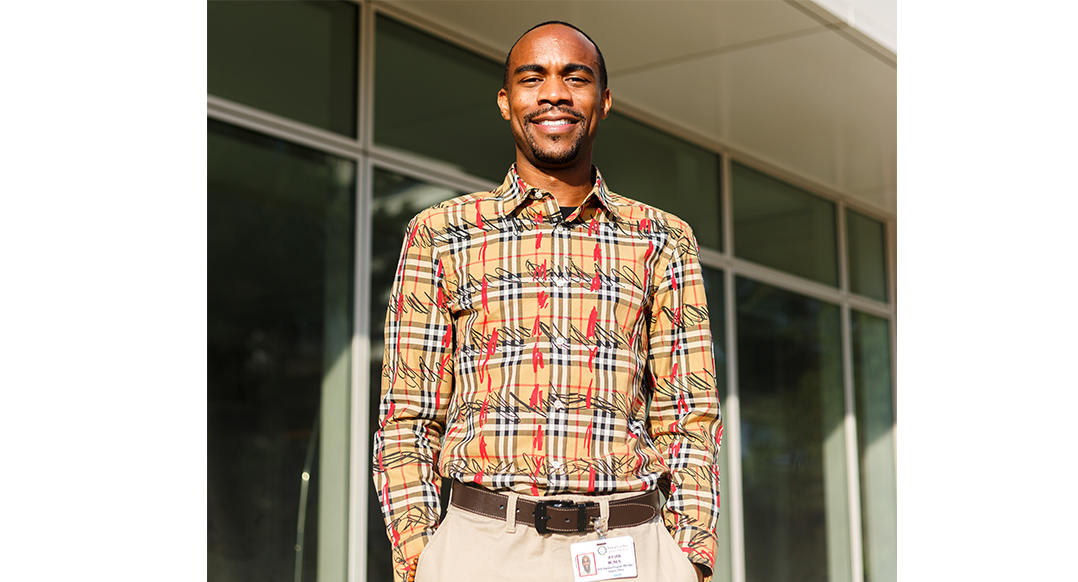UC Global Health Day 2024 features presentations, performances on health equity
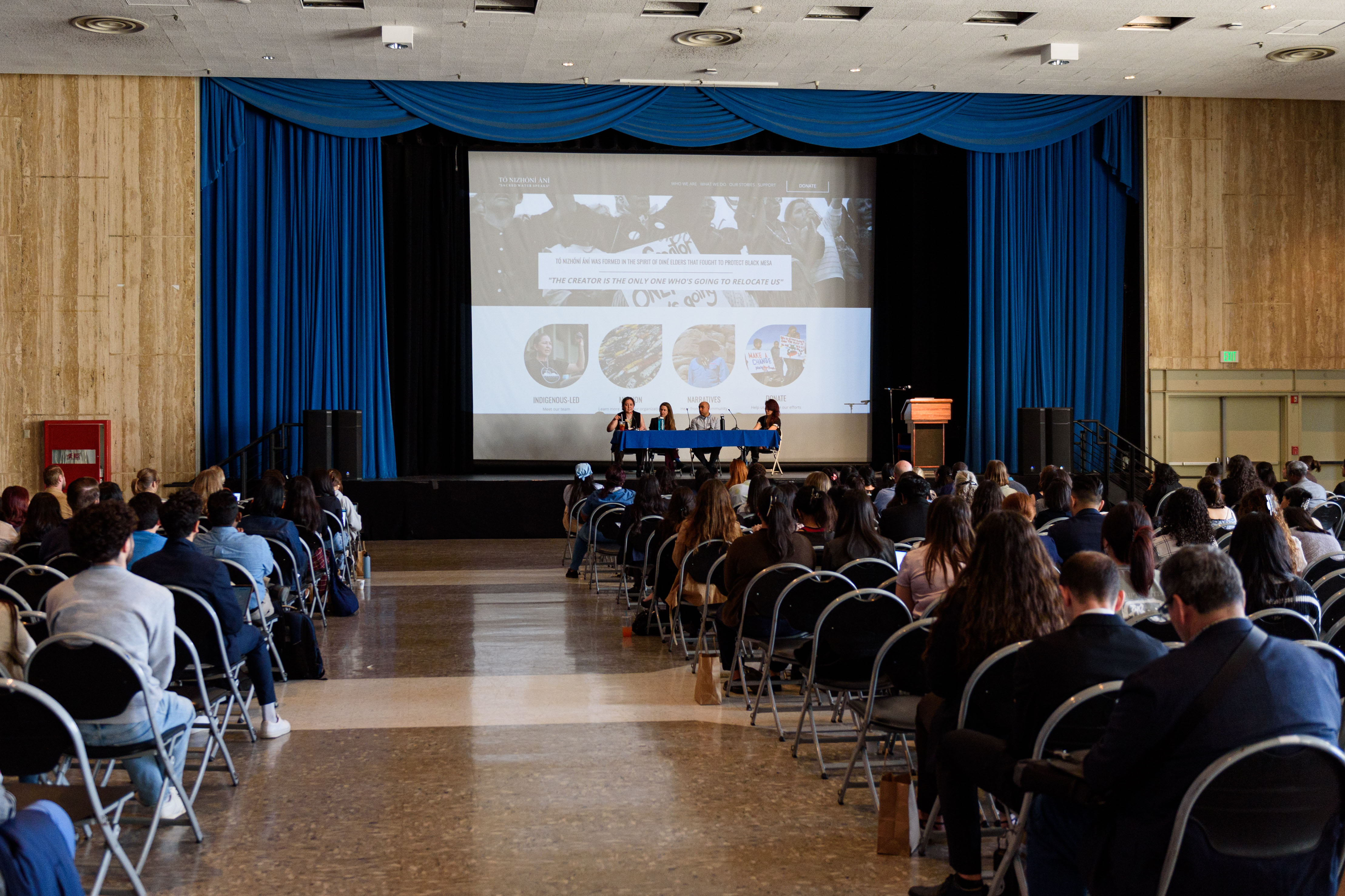
Panelists speak at the annual UC Global Health Day. The event, hosted Thursday, featured various panels and presentations by researchers from across the UC. (Anna Dai-Liu/Daily Bruin senior staff)
This post was updated March 13 at 11:25 p.m.
Hundreds attended the annual UC Global Health Day to share UC-wide health research and discuss health equity policy for marginalized communities.
The conference, which took place in Ackerman Grand Ballroom on Thursday, was hosted by the UC Global Health Institute and featured poster sessions, presentations and performances. Faculty, graduate students and other UC experts discussed their work, which ranged from preventing the energy industry’s exploitation of Indigenous communities to improving reproductive health care for people held in immigration custody.
The day began with speeches from UC President Michael Drake, UCLA Chancellor Gene Block and Dr. Rohan Radhakrishna, the deputy director of the California Department of Public Health’s Office of Health Equity. In his speech, Radhakrishna stressed the importance of transforming global health through policy and advocacy. He added that it is important to recognize the impacts that colonialism and globalization have had on minority groups.
“We have to tackle head-on – as health advocates – the impacts of displacement, migration and war,” he said in his speech. “Whether you like it or not, public health is political, so get your head out of the sand, and get in the game.”
Throughout the conference, the UCLA Art & Global Health Center also sought to highlight health equity through artistic formats.
Members of the UCLA Sex Squad – a student group that educates at-risk youth about sex and relationships, according to its website – acted out skits and told personal stories to destigmatize conversations about sexual health. A photographic installation titled “Through Positive Eyes” displayed the stories of people living with HIV from various cities around the world, including Bangkok and Rio de Janeiro, according to its website.
Activist Jacob Virges took the stage twice to present two different spoken word poems, titled “The Temperature is Rising” and “What About My Dreams?” Virges said he believes the integration of the arts into the event was important in allowing the audience to connect with the event’s subjects on a more emotional level.
Presentations and poster sessions
The morning featured two presentations titled “An Indigenous Perspective on Big Data and Emerging Technologies” and “Unveiling Achievements and Charting Future Goals at the Center for Food Justice and Health Equity.”
During the first panel, Alec Calac – a medical and doctoral student at UC San Diego and member of the Pauma Band of Luiseño Indians – talked about the importance of using data technologies responsibly by doing health research with Indigenous communities rather than on them.
“For Indigenous peoples, as well as many ethnic communities, we can think about health as the interplay between so many different domains, whether they be physical, mental, social and spiritual,” Calac said in his presentation. “Think about all of them equally, and pay attention to the specific needs of those communities.”
Carrie Waterman, director of the UCGHI-affiliated Center of Expertise for Food Justice and Health Equity, then shared her work developing an online hub to bring researchers and community activists together to address food justice. The hub’s information has been developed into a seminar for first-year students at UC Davis as well as an internship program in Sacramento, allowing students to be actively involved in influencing policy at the state level, Waterman said.
On the other side of the ballroom, more than 70 students from across 10 UC campuses shared their research using posters. A poster from Oluwatosin Jegede, a graduate researcher at UCSD, focused on the impact that travel and vaccinations have on hepatitis A outbreaks among men who have sex with men.
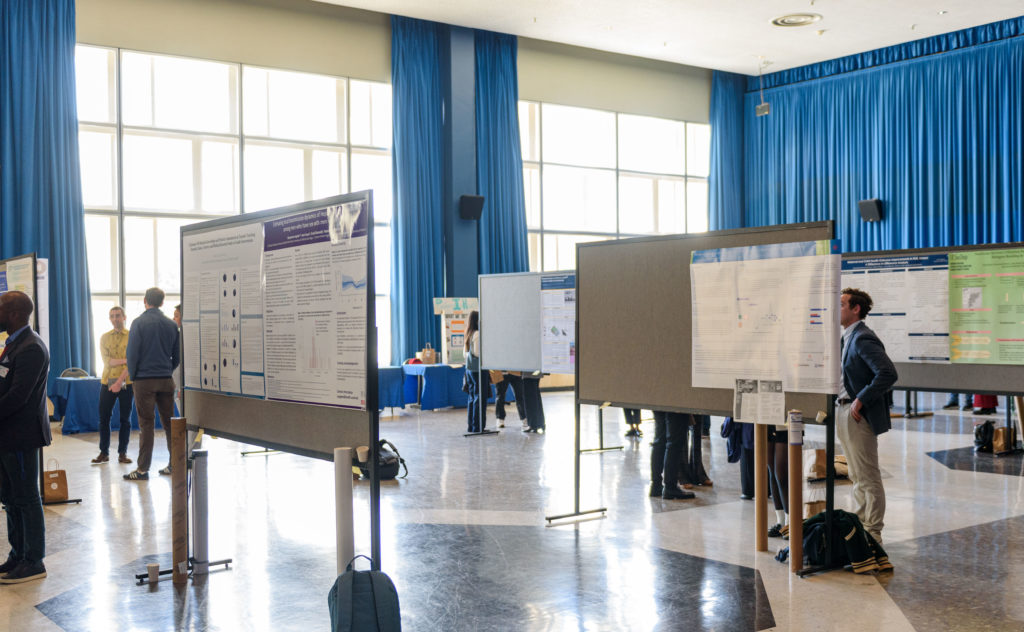
Jegede said the event was a great opportunity for networking. He added that he was able to meet with officials of the institutions from which his data was sourced.
“They were the ones that collected the data and gave the source to analyze, but today I was able to meet with the deputy director, who wasn’t even aware that we were doing this,” he said. “It’s always an opportunity to meet with people who are doing similar things.”
Panels
After a break for lunch, performances and the viewing of an art exhibit, attendees listened to panels titled “Environmental Justice” and “Reproductive Health & Abortion Rights.”
The first panel was moderated by Samantha Ying, an assistant professor in UC Riverside’s Environmental Sciences Department. Panelist Carlos Martinez – an assistant professor in the Department of Latin American and Latino studies at UC Santa Cruz – discussed his work documenting the impact of climate change on the health of California farmworkers and creating intervention tools.
Jessica Keetso – another panelist and a community organizer for grassroots nonprofit Tó Nizhóní Ání, or “Sacred Water Speaks” – said her organization works to prevent corporations from using Indigenous communities’ natural resources for industrial gain. Keetso added during the panel that the combination of her Navajo identity and Western education allowed her to build trust with Indigenous communities.
“This type of work takes a long time. You have to build trust with communities,” said Amber Roegner – a toxicologist and veterinarian who studies algal blooms – during the panel. “There’s more funding and more attention being placed on environmental justice issues, but there’s also an expectation like, ‘Here’s the money. Fix it.’”
The next panel on reproductive health and abortion rights was moderated by Lara Stemple, co-vice chair of the UCGHI’s executive committee. Luseshelo Simwinga Mumba, a registered nurse-midwife at UC San Francisco, said during the panel that since nurses and midwives are the primary pregnancy care providers in low-income countries, improving access to training for these professions can lower maternal and newborn mortality rates.
Monika Langarica, a senior staff attorney at the UCLA Center for Immigration Law and Policy, then talked about her work in increasing reproductive health care access for people under the custody of immigration officials. Langarica said during the panel that she was first exposed to the field after hearing a story from a future client about how she was forced to give birth at a border patrol facility.
The last panelist, Ushma Upadhyay – the co-director of the UCGHI’s Center for Gender and Health Justice – also highlighted the success of using telehealth to increase access to abortion care amid state abortion bans.
“One thing that came across in all of the speakers’ remarks is that disparate access to reproductive health resources really acutely impacts marginalized communities, communities of color, communities … that historically have been underresourced,” Langarica said in an interview. “I think that that’s really important for people to understand.
After the panels, the day closed with a discussion titled “Community Advocacy in Shaping HIV Response and Health Care Access,” which was led by Frank Mugisha, an advocate for LGBTQ+ rights in Uganda and the executive director of Sexual Minorities Uganda.
Discriminatory legislation limits people’s access to preventative care and treatment, he said during the panel. He added that in Uganda, such laws prevent LGBTQ+ people from receiving adequate sexual and reproductive health care.
Radhakrishna said in his speech that it is important for people to get out and vote for candidates who will drive change in public health policy.
“It is the health professional class that needs to get in the game of decarbonizing and being our spokespeople and leaders for planetary health, for population health and for people’s health,” Radhakrishna said in his speech.
Contributing reports by Danielle Cho and Archi Patel, Daily Bruin staff.



